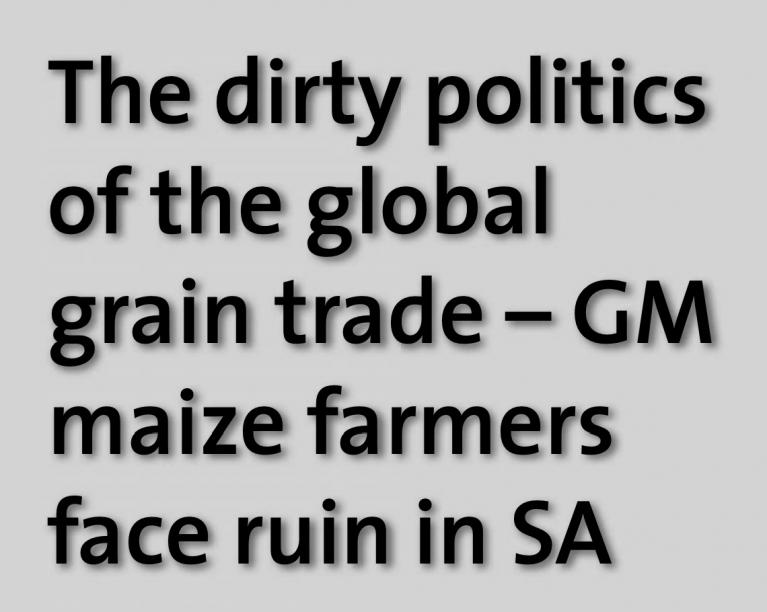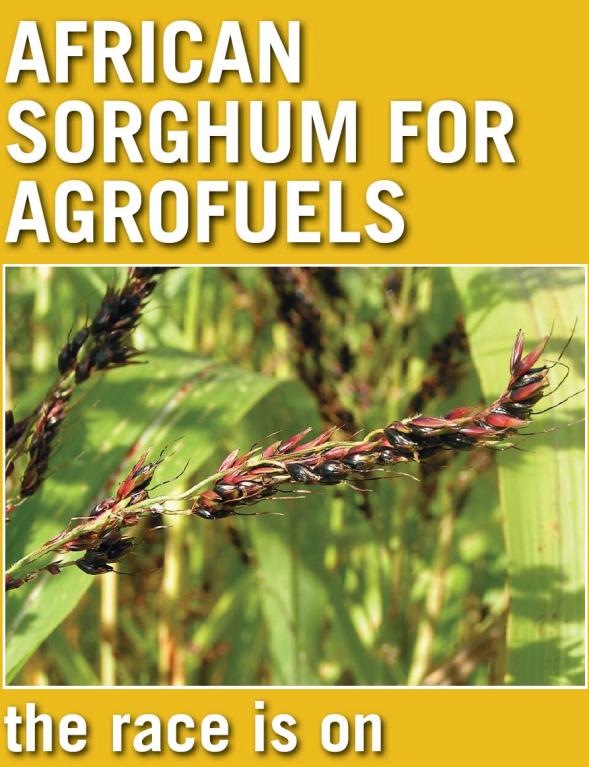Latest Resources

27 October 2010
Biosafety Protocol: Ten years on and lagging far behind
Mariam Mayet attended COP MOP 5 in Nagoya Japan. Indeed, she has been following the Biosafety Protocol discussions since 1999. In this brief, she argues that the Biosafety Protocol lags far behind the biosafety challenges faced by developing countries such as South Africa. She also expresses deep disappointment with the loss of a international civil […]

8 September 2010
The dirty politics of the global grain trade – GM maize farmers face ruin in SA
Recently, the South African press reported on the possible bankruptcy faced by maize farmers. The African Centre for Biosafety (ACB) has today released a new report titled “The dirty politics of the global grain trade – GM maize farmers face ruin in SA” which provides an analysis of why South Africa’s record 13 million ton […]

13 August 2010
GM Sorghum: Africa’s Golden Rice
In this paper, we critically analyse the African Biofortified Sorghum (ABS) project, a GM ‘poster project’ in Africa. We dig beneath the veneer of the project being an “African led solution” to poverty and malnutrition on the continent. We also focus attention on the myriad of sorghum research initiatives currently underway in Africa, using both […]

21 July 2010
Who is Biosafety South Africa
In this briefing, we present an overview of a new organisation called Biosafety South Africa. Biosafety South Africa was launched early this year, receives funding from the South African government through the Department of Science and Technology. Biosafety South Africa has no legislative mandate to influence GMO decision-making but appears set to carve its niche […]

14 May 2010
A good neighbour? South Africa forcing GM maize onto African markets and policy makers
Since the beginning of 2010, South Africa’s Executive Council responsible for GMO permit approvals has granted export permits for almost 300,000 Metric Tons (MT) of GM maize to be exported to Kenya, Mozambique, and Swaziland collectively, and 35,000 MT of GM soybean to Mozambique.1 Despite South Africa being Africa’s largest producer of maize, and a […]

12 May 2010
Traceability, segregation and labelling of genetically modified products in South Africa: A Posit...
South Africa has promulgated national legislation, the Consumer Protection Act (CPA), which creates an opportunity for the mandatory labelling of certain foodstuffs containing or which are genetically-modified organisms (GMOs). The Act sets out a number of consumer rights that have relevance to the sale of products with genetically modified components. These include the right to […]

17 April 2010
Scottish Parliament Motion on GM entry refusal, Kenya, South Africa
*S3M-6119 Bill Wilson: Biodiversity Coalition Opposes GM Contamination. That the Parliament notes reports that 40,000 tons of genetically modified (GM) maize from South Africa have been refused entry to Kenya as a result of protests led by the Kenya Biodiversity Coalition. Further notes, with reference to motion S3M-05873 by Bill Wilson ‘Who Benefits from GM […]

12 April 2010
GM Sugarcane: A long way from commercialisation?
Despite the best part of a decade of research and field trials, genetically modified sugar cane in South Africa remains a long way from commercial cultivation. Numerous research projects are currently underway at a number of publicly and privately funded research bodies, most of which are concentrating on increased sucrose and biomass content. Late last […]

12 March 2010
African Sorghum for agrofuels: the race is on
Author: Edward Hammond About the briefing: The interlocking problems of climate change, emissions from fossil fuels, and limited oil reserves have stimulated interest worldwide in the use of plant crops to produce fuel. Agrofuels are not a new idea. Brazil, for instance, has used them on a large scale for many years. The potential scale […]

4 March 2010
The GM stacked gene revolution: A biosafety nightmare
Stacked GMOs are those containing more than one gene genetically engineered into a crop plant. A controversial stacked GMO, Smarstax containing 8 such genetically engineered genes, was commercially approved in the US, Canada, Japan and South Korea during 2009. Stacked gene varieties are highly complex, posing new biosafety risks that outpace the capacity of regulatory […]
